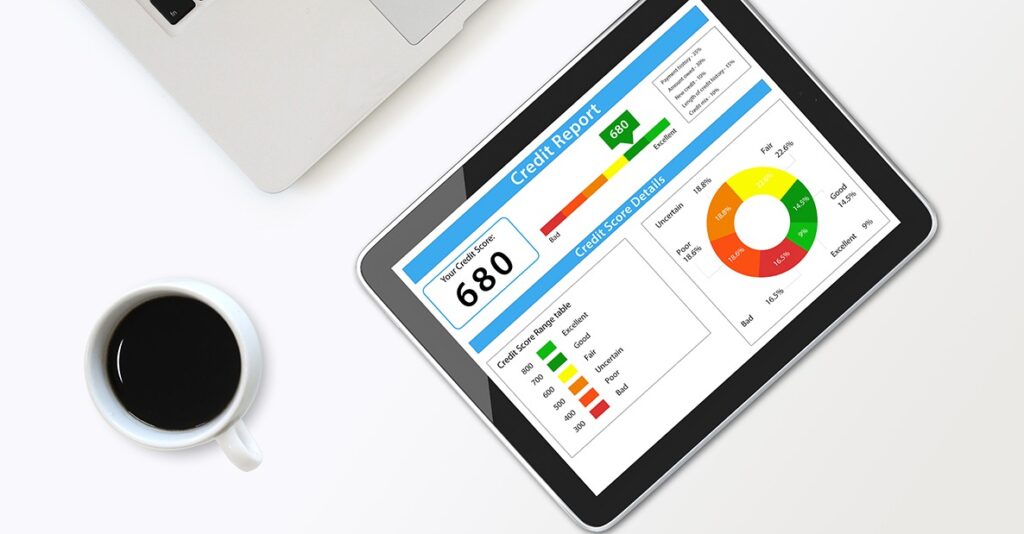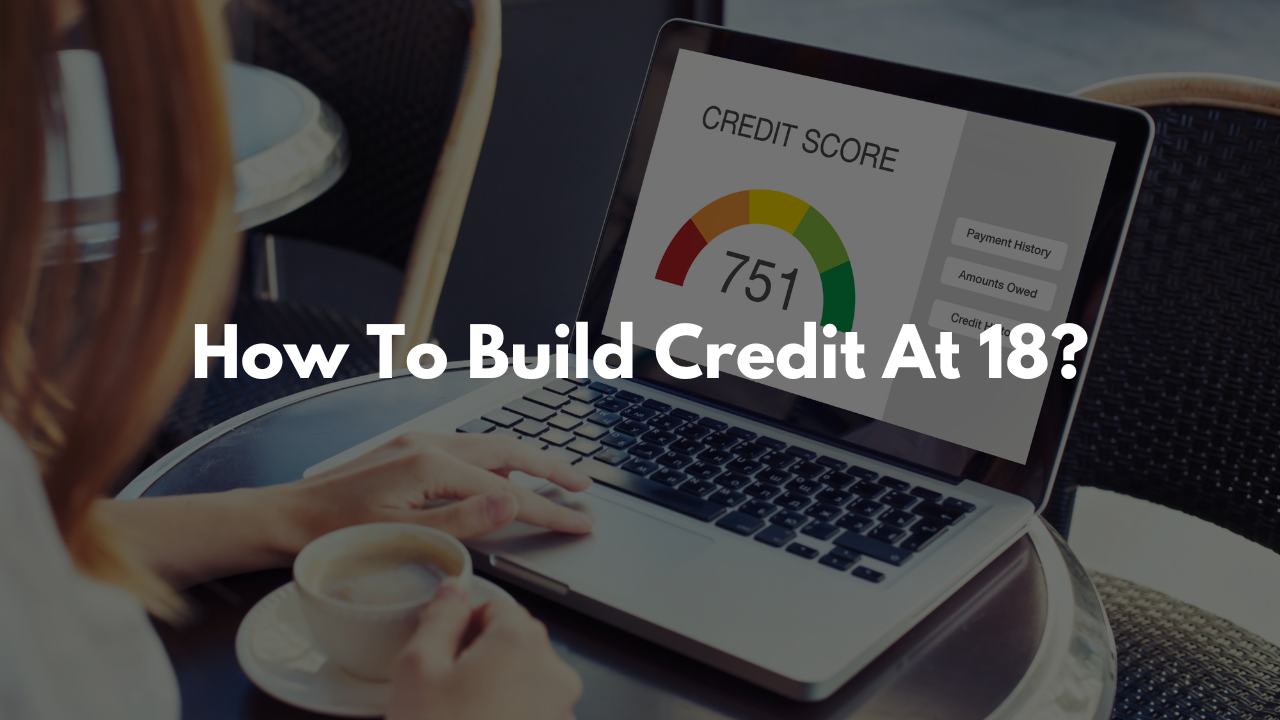Do you ever wonder how to build credit at or before 18? It is said that the sooner you start building good credit, the better off you will be in the long run. Establishing credit early on will position your future self for success.
So you are going to be 18! Young, powerful, and motivated to take over the world. This is an excellent period of one’s life. However, most 18-year-olds need help understanding the significance of credit history. It should not be.
If you demonstrate that you have control over your finances, you’ll have an easier time being accepted for things like a vehicle loan, an apartment lease, or a credit card. High credit is one of the most crucial strategies to achieve this goal.
Therefore, it is essential to develop excellent credit habits early on. If you keep your debt load to a minimum and make on-time payments, you may start building your credit record from a young age.
An excellent credit history can help you qualify for a bigger loan with a lower interest rate.
However, if you receive a credit card or a credit line when you are young and then misuse this credit by not repaying your credit card on time or in full, skipping repayments, powering up several credit cards, or having your accounts sent to collectors, this might cause long-term financial difficulties for you. These errors will remain on your credit report for seven years.
The good thing is that if you make a mistake between 18 and 19, it may be wiped from your credit record by reaching 25 or 26. However, if you learn to use credit responsibly early, you may achieve a high credit score.
At Which Age Can One Start To Build Credit?
You may start to build credit at 18 and be eligible to get a credit card at 18, which, when used carefully, can help you establish a good credit score. With your parents’ assistance, you can begin the credit-building process before age 18.
Here’s what you need to know about how to build credit at 18
How and Where to Start Building Credit at 18
So how does one go about building credit from scratch? Though specific approaches are more challenging than others, you still have options:
1. Take a Starter Credit Card
You can only qualify for a credit card if you are under 21 with a co-signer or proof of adequate income to make payments.
However, certain credit cards are especially beneficial for those just starting in the world of credit. They may assist you in building your credit history without putting you in the situation of being compelled to pay more than you can.
A secured credit card is an excellent choice for a first credit card since it involves an initial cash deposit that serves as the credit limit. If you choose a credit limit between $200 and $500, you’ll be less likely to overspend on the card while still having the opportunity to make on-time payments that may improve your credit score.
Ensure the card issuer provides your payment history to the three central credit reporting agencies (Experian, TransUnion, and Equifax).
You may also ask a parent or other responsible adult to enroll you as an authorized user of their credit card account. You may make purchases, and your payment history will appear on your credit report, while you are not legally obligated to pay the amount.
2. Get A Loan
Another alternative is to take out a loan and develop credit as you repay it.
With a low or nonexistent credit history, qualifying for some loans may take work. However, if you have a short credit history, auto and personal loans may be simpler to prepare for.
You may also access student loans to finance your education. Unlike private student loans, federal student loans come with guarantees and benefits that can aid you if you are having difficulty making payments. Additionally, no credit check is necessary for qualification.
3. Use A Credit-Building Loan
Credit unions and community banks are the most common lending institutions that provide credit-building loans. Consider applying for a loan via an internet company such as Self or Kickoff.
Borrowed funds in a credit-builder loan are held in a savings account and made available to borrowers after the loan period. Proof of income is often required, so borrow just what you need.
As you make timely loan payments, the financial institution will submit this information to the credit bureaus. After the loan period, you’ll have higher credit and money saved, resulting in a win-win situation.
4. Build Credit Through On-Time Payments
The most influential aspect of your credit score is the frequency you make your payments on time.
Your payment history constitutes 35% of your FICO® Score, which is the Score that lenders review the most often.
If you want to avoid missing a payment on a loan or credit card, set up alerts on your smartphone to notify you, or better yet, set up automatic monthly payments to be deducted from your bank account.
Late payments are the most significant factor in determining your credit score; therefore, making sure you never miss a payment should be your top priority.
5. Keep Your Spending Within Your Means.
Your utilization rate of the available credit you’ve been allocated is the second most essential criterion in determining your credit score after the time you’ve had credit accounts open.
If your credit limit is $1,000 and you routinely carry a $900 monthly, your credit score will deteriorate. Instead, make it a goal to pay off the whole balance on your credit card each month; it’s one of the quickest ways to build credit at 18.
In other words, charge only what you can afford to pay off in full when your credit card statement comes due.
Credit cards provide extended payment terms for large purchases, but waiting longer than 30 days to repay the balance can negatively impact your credit score and incur interest charges.
6. Maintain Control of Your Credit
To increase and improve your credit score, check it often. Experian and many other services, including monitoring systems that your bank or credit card issuer may provide, allow you to check your credit score for free.
Observing your Score’s improvement might drive you to maintain it.
Additionally, you may get a rapid notification if it lowers due to an unintentionally missed payment.
Keeping track of how your credit score changes over time is one of the most effective strategies to increase your credit knowledge.
Can I establish credit at 16 or earlier?
Yes, it is possible. One way to benefit from your parents’ strong credit is to ask to be added as an authorized user to one of their credit cards. The account will be counted on your credit report as an approved user.
And this choice is available to minors as well. Most credit cards enable authorized users younger than 18; however, the minimum age requirement varies from card to card.
Additionally, as an authorized user, the principal user’s activities, whether good or bad, will affect your credit.
For example, if the principal user pays their payments on time and keeps their credit usage low, this might be an excellent way to establish credit. On the other hand, your credit can take a hit if the principal user consistently pays late or uses too much of their available credit. It is an incredible way to build credit at 18.
Bottom Line: How to Build Credit at 18
When you first become an adult, getting credit might not be easy since you do not yet have a credit history to vouch for you. To remedy this issue, use some of the above steps on how to build credit at 18. Always remember that the best way to build a good credit score is to make timely payments and use as little of your available credit as possible. Although it won’t happen overnight, developing excellent credit habits today can help you save lots of dollars throughout your lifetime.
Related Article:
Best Companies that Clean up your credit report



